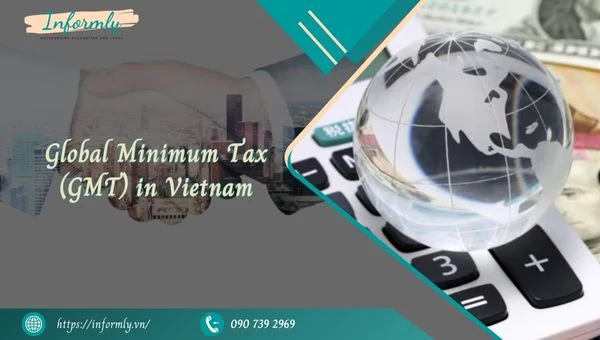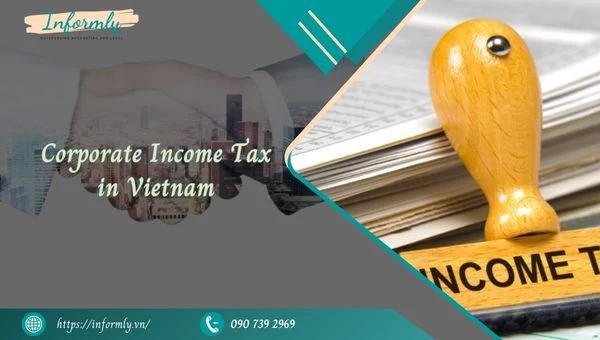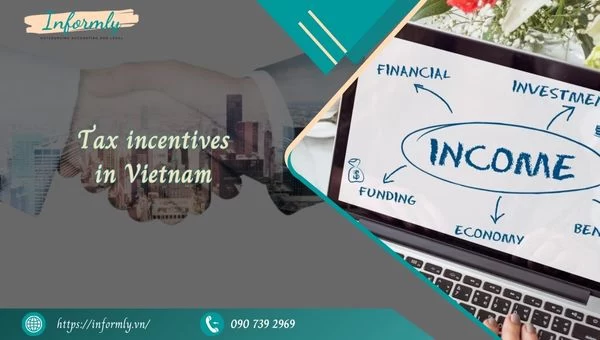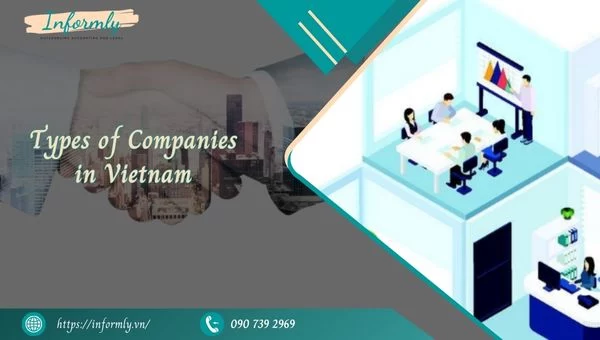Setting up a company in Vietnam requires navigating several stages, including obtaining approval and gathering the necessary documentation from relevant local authorities. Additionally, depending on the type of business entity and the sector the company plans to enter, there may be specific requirements to fulfill.
This article aims to provide a clear, step-by-step guide to the company setup process, helping businesses establish their presence in Vietnam as efficiently as possible.
How to choose the right type of company when setting up a business in Vietnam
The right company structure not only ensures legal compliance but also impacts your business strategy, operations, and financial benefits in the future. In Vietnam, there are several common types of companies that foreign investors can establish, each with its own advantages and legal requirements.
Limited Liability Company (LLC)
The Limited Liability Company (LLC) is one of the most popular business types for foreign investors. It requires at least one founding member and offers limited liability for company debts.
The key benefit of an LLC is that your liability is limited to your capital contribution, which helps reduce personal risks. This structure is ideal for small to medium-sized businesses that want to operate independently without complex procedures.
Joint-Stock Company (JSC)
The Joint-Stock Company (JSC) is a type of company that can raise capital by issuing shares and allows for easy transfer of shares. A JSC is a good option for larger businesses or projects that require significant capital raising.
However, one of the key requirements of a JSC is having at least three shareholders and adhering to legal requirements regarding shareholder meetings and board of directors.
Representative Office (RO)
If you only want to test the market or establish relationships with partners in Vietnam without directly engaging in business activities, a representative office could be the right choice.
However, a representative office cannot conduct business activities or sign contracts. This is a great option if you want to research the market or promote your brand without setting up a fully operational company.
Branch Office
A branch office is a direct extension of the parent company that can engage in business activities in Vietnam. To establish a branch, the parent company must already have at least one branch in Vietnam and must register with local authorities. A branch office can be a good option if you want to expand the operations of the parent company without setting up a new company.
Choosing the right type of company is crucial to ensuring a smooth and profitable venture in Vietnam. Foreign investors should also ensure compliance with Vietnam’s foreign ownership regulations and understand the necessary legal steps to establish a business successfully.

==> See more: Accounting services
Setup company process in Vietnam
Establishing a company in Vietnam involves several steps, and foreign investors must complete all necessary procedures and documentation before beginning operations. To simplify the Vietnam company incorporation process, summarizes the key steps as follows:
Step 1 – Pre-Investment Approval
Before starting the company formation process, foreign investors need approval from the Vietnamese authorities. This approval is essential for projects that fall under certain categories. It’s important to identify whether your investment requires approval and to prepare the necessary documents while keeping to application timelines.
Some project types requiring special approval include:
- Residential housing projects
- Airports, ports, air transport businesses, cargo terminals
- Petroleum processing
- Casinos and betting-related businesses
- Infrastructure for industrial or export-processing zones
- Nuclear power plants
- Golf courses
- Projects involving special land use rights or located near defense-sensitive areas
- Projects in heritage sites or requiring relocation of inhabitants
Step 2 – Investment Registration Certificate (IRC) Application
The next step in company formation is applying for an IRC, which is mandatory for all foreign-invested projects in Vietnam. This certificate validates the foreign enterprise’s right to operate in the country.
Required documents for the IRC application include:
- Investment project application with details about the project in Vietnam
- Project proposal, including lease agreements or land use requirements
- Financial statements for the last two years (additional information may be requested to prove financial capacity)
- Legal documents of investors and their authorized representatives (if applicable)
- Lease agreements or memorandums of understanding (MOU)
- Other relevant documents about the project and the investor’s eligibility
Timeframe:
Typically, the IRC processing time is 15 days, though it may take longer if the project involves sectors not governed by the WTO.
Step 3 – Enterprise Registration Certificate (ERC) Application
The ERC is required for company registration in Vietnam and acts as the entity’s tax registration number. To apply, the following documents are needed:
- Enterprise registration application
- Company charter
- Board member list
- Legal representative list
- Appointment and authorization letters
Step 4 – Post-Licensing Procedures
Once the IRC and ERC are issued, several additional steps are necessary to finalize the process and begin operations:
- Seal carving
- Opening a company bank account
- Registering employees
- Paying business license taxes
- Contributing charter capital
- Announcing the company establishment publicly

==> See more: Bookkeeping in Vietnam
Requirements for setting up a company
Minimum Capital Requirements
In Vietnam, foreign investors must meet certain minimum capital requirements depending on the nature of their business. While the law does not specify an exact minimum amount for most industries, the capital should be sufficient to cover the business operations and ensure the project’s success. Authorities may assess whether the capital is adequate based on the project scale and type.
Charter Capital and Total Investment Capital
Charter capital refers to the initial capital contributed by the investors to establish the company, while total investment capital includes both the charter capital and any additional capital required for project operations, such as working capital and operational expenses. The charter capital must be sufficient to cover the project’s initial costs and demonstrate the company’s financial capacity to local authorities.
Capital Contribution Schedules
Capital contributions from investors should follow a schedule outlined in the company’s charter. This schedule details how and when each investor will contribute their share of the capital. It is essential to meet the agreed-upon deadlines for contributions to avoid penalties or delays in company registration.
Transferring Capital to the FIE (Foreign-Invested Enterprise)
When transferring capital to a Foreign-Invested Enterprise (FIE), foreign investors must follow specific procedures, including transferring funds via authorized banks. The transaction must be documented properly to comply with regulations, ensuring that the capital is recorded as a contribution to the company’s registered capital.
Registered Address
A registered address is mandatory for all companies in Vietnam. The address must be located within the city or province where the business is to be conducted and should comply with zoning laws. It is important to ensure that the address is suitable for your company’s activities and meets local requirements.
Company Representative
Every company in Vietnam must appoint at least one legal representative. This person is responsible for signing documents, managing company operations and acting on behalf of the company in legal matters. The legal representative must be a Vietnamese resident or a foreigner who holds the relevant permits to stay and work in Vietnam.

FQA?
Question 1: How long does the company registration process take in Vietnam?
The process of incorporating a 100% foreign-owned company in Vietnam typically takes 40 to 60 working days, excluding public holidays, from the time the necessary documents are submitted. On the other hand, registering a local (Vietnamese-owned) company is faster, usually taking only 7 working days.
Question 2: What’s the difference between a local company and a foreign-owned company?
A foreign-owned company, also known as a foreign direct investment (FDI) company, requires meeting a minimum capital investment and applying for an Investment Registration Certificate (IRC). This process is generally longer and more expensive than setting up a local company. In contrast, a local company is established under the name of a Vietnamese representative and typically does not have minimum capital requirements.
Question 3: How much does it cost to register a company in Vietnam?
The average cost of company registration through a service provider like InCorp is approximately US$2,950. This cost includes government fees and other associated expenses.
Question 4: What is the recommended minimum capital for incorporating a foreign entity in Vietnam?
Although there is no official minimum capital requirement, it is commonly advised to allocate a minimum capital of US$20,000 during the company incorporation process.
Question 5: What type of visa allows long-term stay in Vietnam? Can I sponsor my family’s visa?
Vietnam does not offer retirement visas or digital nomad visas. Long-term stay options include:
- Marrying a Vietnamese national and applying for an exemption visa.
- Establishing a company and obtaining a Temporary Residence Card (TRC).
- Securing employment with a work permit and TRC.
Question 6: What should I consider when setting up a foreign company in Vietnam?
Key factors to consider include:
- Entity Type: Choose a business structure that aligns with your goals and activities.
- Location: Select a location that is ideal for your business, especially if you are in the manufacturing or services sector, as this can influence your success.
- Legal Compliance: Ensure you understand and comply with all legal requirements, including labor laws, taxation and necessary certifications, to ensure smooth operations within legal boundaries.
Question 7: How long does it take to set up a company in Vietnam?
For businesses with basic requirements, the setup process usually takes about 30 business days. However, if your business falls under conditional investment sectors, the process may take up to 60 working days.
Question 8: What are the main types of tax liabilities in Vietnam?
Vietnam has the following tax liabilities:
- Personal Income Tax: Applicable to income over VND 9,000,000.
- Value-Added Tax (VAT): 0%, 5% or 10%, depending on the specific case.
- Corporate Income Tax: Generally 20%.
- Import and Export Taxes: Variable, with export tax typically being zero except in special cases.
For any questions or challenges related to completing your accounting records, please don’t hesitate to contact Informly. We’re here to provide the most tailored and detailed advice for your specific needs.







